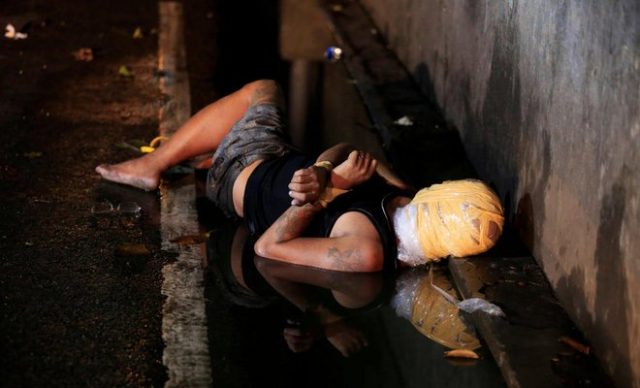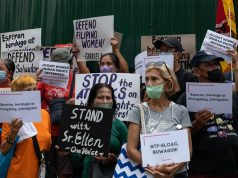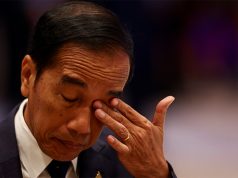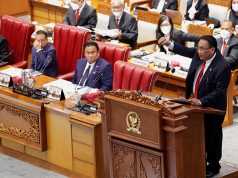
MANILA, Philippines — With thousands of lives claimed by the government’s war on drugs, the Philippines has landed on top of the heap in the 2017 Global Impunity Index, but opposition lawmakers fear the worst is yet to come.
The index, a survey of 69 countries by the Universidad De Las Americas in Mexico, which itself has seen thousands killed as crime gangs battle each other and law enforcement agencies, gave the Philippines a score of 75.6 points, also citing violence from extremist groups linked to the Islamic State.
Following it in the top tier are India (70.94), Cameroon (69.39), Mexico (69.21), Peru (69.04), Venezuela (67.24), Brazil (66.72), Colombia (66.67), Nicaragua (66.34), Russia (64.49), Paraguay (65.38), Honduras (65.04) and El Salvador (65.03).
“The worst is yet to come if the government will not come up with an alternative program in bringing (a) solution to the illegal drugs problem,” Caloocan Representative Edgar Erice said.
Ifugao Representative Teddy Baguilat Jr. called the Philippine ranking “a global indictment of the kind of justice being perpetuated in the country.”
“Getting this ignominious reputation is no surprise because this government promotes impunity as an official policy,” he said.
In Duterte’s war on drugs, Baguilat lamented that justice is achieved “through the barrel of the gun and accountability of agents of impunity is set aside.”
Estimates place the total deaths to the war on drugs at upwards of 13,000 since last year, but the killings have continued and Duterte continues to be popular despite an intensifying backlash mainly triggered by the recent killing of teenagers by police, with the largest outpouring of dissatisfaction the nationwide protests marking the 45th anniversary of the declaration of martial law by the dictator Ferdinand Marcos, who critics say Duterte is emulating.
Akbayan Representaive Tom Villarin said “the world has spoken” with the impunity index, and it was saying, “There’s no fun in the Philippines.”
This “indictment,” he added, gives the International Criminal Court more reason to look into the killings in the country, which has “become the basket case of democracy and the new killing field in Asia’s only Catholic country.”
“It shows how dysfunctional our security, justice system and human rights protection mechanisms have become,” Villarin said. “It shows a breakdown of our structural capacity to dispense justice where even our Department of Justice can only prosecute 72 cases out of 13,000 killed in the war on drugs.”
Magdalo party-list Representative Gary Alejano agreed that the bloodshed will not stop if the policy is not changed.
“I believe that Duterte, by his numerous public pronouncements of condoning, encouraging and rewarding state agents (who) kill drug suspects, has adopted a policy of killings. Duterte has ignored (the) experiences of other countries’ war on drugs, which showed that killings of suspects will not solve the problem,” he said.
“With the president promising to pursue war on drugs with more vigor, let us expect more killings of drug suspects,” he added.
“The Philippines is going through one of its most critical moments, due to the increase of violence related with organized crime and increased terrorist activities from local gangs linked to the Islamic State,” the index said.
The study monitored criminal justice procedures beginning with the commission of crime or offense, continuing with crime reporting and investigation and concluding with a judgment or means to redress the injustice done.
It measured impunity using two factors.
First was the functionality of security, justice systems and the protection of human rights, which was scored according to indicators such as the percentage of individuals detained without judgment and the ratio of prosecutors to individuals brought before courts.
The second factor was the structural capacity of the justice systems with indicators such as the number of cops or judges per 100,000 of the population and the number of prisoners compared to the overall jail capacity.
The measuring range is 0-100 where zero means inexistent impunity while 100 means the highest level of impunity.
The study said the Philippines has problems in both functional and structural dimensions.
The Philippines scored 94.06 for its structural security system and 99.07 for its structural justice system. It got 44.64 for its functional security system and 42.22 for its functional justice system.
This indicates that the country has not yet installed the capacities needed to deliver justice and security.









